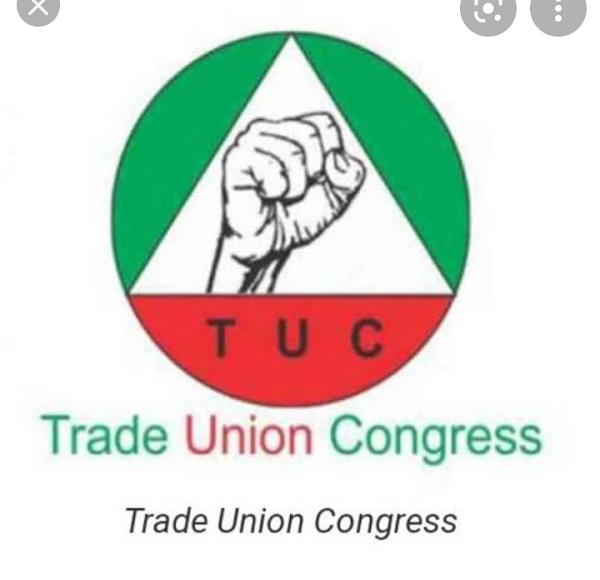Stakeholders in the oil and gas industry and the Trade Union Congress (TUC) have frowned at the provision in the Senate version of the Petroleum Industry Bill (PIB) that allowed only active refinery licence holders to import petroleum products into the country.
The stakeholders, including the NUPENG and PENGASSAN, who spoke on the implications, noted that the provision, though encouraged local development, might force existing players out of the market, leaving a monopolistic market for the national oil company and big refiners.
According to them, the development is against business ethics and will deprive the nation all the potential in the recently passed bill.
Speaking, a former President of the Society of Petroleum Engineers Nigerian Council, Joseph Nwakwue, expressed concern that the provisions would create a duopoly in a price deregulated environment, thereby, destroying the Nigerian downstream industry.
Nwakwue said: “In the near term, only NNPC and Dangote will have domestic refining capacity for PMS for instance, so they will be the only importers. This takes the industry back and could not have been the intention of the Bill.
“Moving from a state-owned monopoly in a price regulated market to a duopoly in a price deregulated market is not what Nigeria needs now as it takes the industry backward and exposes Nigerians to exploitation and further hardship. This, in my humble view, is not reformatory.”
He said that rather than seek to protect refiners, the Nigeria should seek to protect consumers by liberalising and expanding petroleum product supply sources.
According to him, that is the only way prices will be ‘market-determined’ and consumers made to pay fair value for the products they buy.
“The viability of local refining is not determined or enhanced by locking out competition, it is rather achieved through price deregulation, which has been done in Section 205. This clause gives statutory unfair advantage to private players rather than through market competition,” he added.
Also, the Trade Union Congress of Nigeria (TUC) described the planned move to limit fuel imports to only owners of refineries as monopolistic and a deliberate attempt to frustrate the challenges the Petroleum Industry Bill (PIB) is intended to solve
The TUC President, Mr Quadri Olaleye and the Secretary General, Mr Musa-Lawal Ozigi, said the country could not afford to continue toying with the oil and gas sector as it remains the only major source of foreign exchange.
“The labour chiefs are surprised, dismayed and irritated by the conspiracy to waste another opportunity to fix the sector, noting that from the lawmakers’ position and body language, one could infer they are serving the interest of some few individuals to the detriment of the over 97 per cent of the country’s population but the congress will not allow that to happen.
“The labour leaders urge the lawmakers to rise up and provide true leadership instead of serving the interest of few capitalists. It is high time ‘these principalities and powers’ removed their knees from the neck of Nigeria and Nigerians,” TUC said in a statement jointly issued.
Reacting, the leadership of PENGASSAN and NUPENG, which appreciated the National Assembly for the passage of the PIB to unlock the fortune of oil and gas industry, called for removal of the clause restricting importation license to few operators.
“As we intensify effort to make our refinery work, we should ensure that the PIB does not monopolies the importation of PMS as currently provided in the senate version of the bill. This is to ensure that there is competition in the downstream oil and gas industry.
“Leaving this national security issues to few individuals will shortchange the larger Nigerian populace. We should avoid running from one ugly scenario to an uglier situation that is avoidable,” the NUPENGASSAN said in a statement jointly issued by Mr Lumumba Okugbawa (PENGASSAN General Secretary), Mr Festus Osifo, (PENGASSAN President), Mr Olawale Afolabi, (NUPENG General Secretary) and Mr Williams Akporeha (NUPENG National President).
According to the group, inclusion of PENGASSAN and NUPENG on the board of the industry regulator(s) is crucial for the attainment of one of the key objectives of this bill, which is to ensure accountability and transparency in the industry.
“All Civil societies and labour strongly clamored for the inclusion of the two Unions in the sector to be on the board of the regulators for reasons of global best practice currently being practiced in most climes.
“The needs and justifications for this are many and enormous as it will also ensure that the regulators are further strengthened in ensuring that issues bordering on the welfare of workers would have been championed from the cradle of the bill,” the NUPENGASSAN said.
The union also advocated for a single regulator in the best interest of the industry and the nation at large, saying that it would serve as a one-stop-shop for current and aspiring investors.
According to the statement, the NUPENG and PENGASSAN are hoping that the grey areas, especially monopoly to be granted to few refiners, should be addressed by both houses of the Assembly before the Bill is sent to President Muhammad Buhari for assent.
The oil workers believe that if the grey areas are not addressed now before the Presidential assent to the Bill, it would hinder the full potential of the bill.
The workers said that the clause remained one of the major drawbacks of passed bill.
Speaking on the condition of anonymity, a respected industry player said that unless the clause is removed, there may not be a level playing field in the industry.
“As price control is being removed, supply must be competitive, inclusive, transparent and seen to encourage efficiency,” he stated.


Comment here